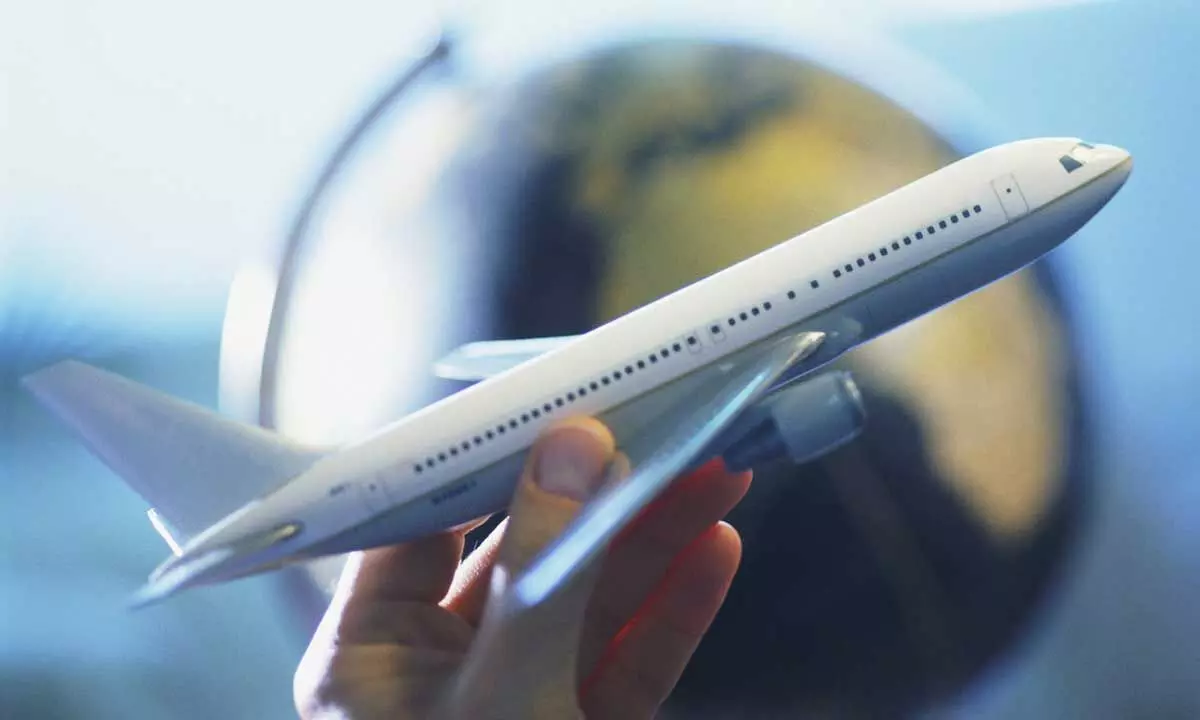Time to revisit aviation policy
Go First’s insolvency resolution is a disheartening development for more than one reason for the country’s civil aviation sector. The airline, owned by the Nusli Wadia group, has blamed Pratt & Whitney for its “faulty engines”, which had forced grounding half of Go First’s fleet.
image for illustrative purpose

Go First’s insolvency resolution is a disheartening development for more than one reason for the country’s civil aviation sector. The airline, owned by the Nusli Wadia group, has blamed Pratt & Whitney for its “faulty engines”, which had forced grounding half of Go First’s fleet.
First, it has come at a time when the Indian economy is getting out of the shadow of the pandemic. A major company going belly up at this juncture is discomforting. Second, the passenger air traffic is about to reach the pre-Covid level. Disruption at this point doesn’t look good. Third, Go First stopping operations—or, worse, dying—would result in almost a duopolistic situation. Indigo, with a 56 per cent share, is the market leader; the Tata-owned airlines have about 26 per cent. While Go First had less than 10 per cent share of the market, it offered fliers an option. India’s nascent aviation sector needs competition in order to make it more vibrant. It was around 29 years back that private airlines were allowed to operate in the country. Since then, 27 have died, almost at one every year. While there is nothing unusual in companies perishing in a capitalist economy, a high death rate can lower competition, which is never a good sign in any sector.
There are several challenges the Indian aviation business faces, with the foremost being the problem of engines, which is not just confined to Go First. It also affected Indigo’s performance, but, it sorted out that the problem in the very initial stages. Although there has been an upswing in air travel, the domestic industry is best with issues like shortage of engines and non-availability of crew and grounded aircraft. According to CAPA India, a specialist aviation advisory and research body, almost 110 aircraft or 15 per cent of India’s total fleet across four companies is grounded because of the supply and non-supply chains issues. “The impact of grounded aircraft is reflected in the financial performance of the airlines,” CAPA India CEO Kapil Kaul has observed. High fuel prices have bled the entire sector. There is no reason for the aviation sector to be weak. In the last 10 years, the number of domestic passengers has risen from 14 million to 144 million, which is a spectacular growth when taken on any yardstick.
The physical and human infrastructure, however, has not kept pace with the steep growth in the sector. CAPA India estimates that Indian companies would need around 11,000 additional pilots by 2029-30. Industry insiders don’t think that the country can get as many in the next seven years. It is quite evident that the government’s aviation policy is not working. The fuel rate is very high. Also, there is too much of government interference. For instance, the low-cost flying scheme UDAN (which stands for Ude Desh Ka Aam Nagrik) forces airlines to fly on non-lucrative routes. Social obligations cannot be thrust on an industry that is not in the pink of health. It is time the government revisits its aviation policy and rejuvenates it to make it a global player of repute.

